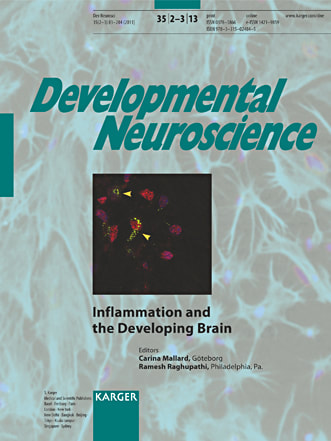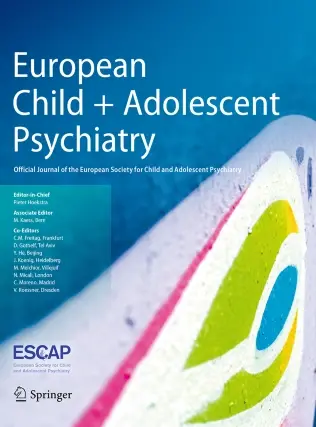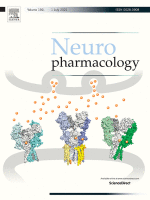|
Avi Kaplan
Change Is On The Rise |
Working to Eliminate Homelessness & Criminal Justice Involvement of People with Cognitive Disabilities
|
PREVIEW: Law & Order Thursday
Accommodating "Spikiness"
|
Val's Take/Conjecture
|
Dr. Saltz recommends 80% of the time spent on STRENGTHS DEVELOPMENT and 20% of the time on WORK-AROUNDS for WEAKNESSES.
"WORK-AROUNDS for WEAKNESSES" for DEVELOPMENTAL DIFFERENCES in Neuro-Developmental & Psychiatric Disorders is a lot different than "Behavioral Modification." Further, addressing:
|
PREVIEW
What is a Neuro-Immune Transcriptome?
|
Val's Take/Conjecture
|
Neuroimmune transcriptome changes in patient brains of psychiatric and neurological disorders (2023)
*Chinese, American [SUNY -- State University of New York] & Australian Researchers The Australian Researcher Cynthia Shannon Weickert participated in this --- she has been on the forefront of research involving the immune system and psychiatric disorders. She has a twin brother with "Schizophrenia." Professor Cyndi Shannon Weickert (Neuroscience Research Australia) talks with ABC Radio National's Dr Norman Swan on the Health Report (2012)
Is an Overactive Immune System a Cause of Schizophrenia? |
Preview
Why the dsm 5-TR fails --
|
Val's Take/Conjecture
Metabolome subtyping reveals multi-omics characteristics and biological heterogeneity in major psychiatric disorders (2023)
*Chinese Researchers Abstract
Growing evidence suggests that major psychiatric disorders (MPDs) share common etiologies and pathological processes. However, the diagnosis is currently based on descriptive symptoms, which ignores the underlying pathogenesis and hinders the development of clinical treatments. This highlights the urgency of characterizing molecular biomarkers and establishing objective diagnoses of MPDs. Here, we collected untargeted metabolomics, proteomics and DNA methylation data of 327 patients with MPDs, 131 individuals with genetic high risk and 146 healthy controls to explore the multi-omics characteristics of MPDs. First, differential metabolites (DMs) were identified and we classified MPD patients into 3 subtypes based on DMs. The subtypes showed distinct metabolomics, proteomics and DNA methylation signatures. Specifically, one subtype showed dysregulation of complement and coagulation proteins, while the DNA methylation showed abnormalities in chemical synapses and autophagy. Integrative analysis in metabolic pathways identified the important roles of the citrate cycle, sphingolipid metabolism and amino acid metabolism. Finally, we constructed prediction models based on the metabolites and proteomics that successfully captured the risks of MPD patients. Our study established molecular subtypes of MPDs and elucidated their biological heterogeneity through a multi-omics investigation. These results facilitate the understanding of pathological mechanisms and promote the diagnosis and prevention of MPDs [Major Psychiatric Disorders]. |
"The American Psychiatric Association continues to welcome empirically-grounded proposals for change. Guidelines for submitting such proposals can be found at www.dsm5.org." If the APA is not embracing the "underlying biology" --- it is making an attempt to endorse "empiricism."
Further, there does seem to be a recognition that the DSM 5-TR is not the last word --- and that is a good thing. Additionally, the APA is working on DSM 6. What is missing are the more fundamental criticisms of the DSM and a loss of "Faith" as a result of "Empiricism" in the category structure --- even with some updates. "Today, the field is held back by a nosology that has good inter-rater reliability, but that has seen no validation of any diagnostic entity by specific biomarkers that would inform diagnosis, possibly irrespective of existing diagnostic entities.
"The lack of progress in the development of drugs is largely due to the fact that patients are seldom prescreened for specific biomarkers before being included in clinical trials. "Neither are they commonly prescreened for the pathology, subgroup, and/or dimensions of interest to potentially respond to a specific drug. "Both clinicians and regulatory agencies still work under the notion of “one size fits all,” which has induced errors and failures of clinical trials in past decades." [This is ironic --- Rice University is in Texas] "In general, the meeting indicated a crucial need for a biology-informed framework to establish more precise diagnosis and treatment for mental disorders to facilitate bringing the right treatment to the right patient at the right time."
|
Preview
The Ethics of Mitochondrial Replacement Therapy & Transplantation
|
Val's Take/Conjecture
|
Mitochondrial transplantation in brain disorders: Achievements, methods, and challenges (2025)
*Swiss Researchers |
Preview: Neuro-Diversity Wednesday
Neuro-Diversity and Thyroid Problems
|
Val's Take/Conjecture
Conclusions: This bidirectional MR [Mendelian Randomized] study supports the role of GD [Graves Disease] in the causal association with an increased risk of bipolar disorder, which guides us to pay attention to the mental diseases of GD patients in the clinic.
|
Dr. Daniel Amen -- Brain Warrior's Way
10 Signs Thyroid Problems May Be Impacting Your Mental Health |
PREVIEW
RFK JR., Autism --- and A Maternal Immune Activation Hypothesis
Researchers actually already know a lot more about autism than They did --- even though it is not common knowledge
|
Val's Take/Conjecture
Maternal Inflammation During Pregnancy and Offspring Brain Development: The Role of Mitochondria (2022)
[A]lterations in mitochondrial structure/function due to MIA may be programmed and, hence, can persist over the life span."
"Thus, in addition to the effects of MIA-induced alterations in mitochondrial function on the developing brain, these mitochondrial alterations may continue to exert long-term effects on the brain (and other systems) over the life span of the individual." If we really want to provide better treatments for Neuro-Developmental & Psychiatric Disorders ---
|
Dr. Chris Palmer
Autism: Disorder, Disability or Difference Palmer makes the point that genetics is not necessarily the biggest factor --- but individual issues during neuro-development in utero. That would be consistent with the Maternal Immune Activation Hypothesis of Neuro-Developmental and Psychiatric Disorders. Further, Paternal Immune Activation has also been recognized. Resveratrol prevents offspring's behavioral impairment associated with immunogenic stress during pregnancy (2025)
*Brazilian Researchers Does maternal immune activation dysregulate mitochondria in microglia?
(April 27, 2025) Yes, maternal immune activation (MIA) can dysregulate mitochondria in microglia. . . . MIA activates microglia, the brain's immune cells, leading to the release of proinflammatory cytokines. Mitochondrial Dysfunction: This microglial activation can disrupt mitochondrial function in microglia, potentially leading to oxidative stress, altered mitochondrial membrane potential, and changes in mitochondrial protein expression. . . . Mitochondria as a Target and Mediator: Mitochondria are not only affected by inflammation but can also contribute to the inflammatory process by releasing mitochondrial DAMPs, which can activate the inflammasome and further amplify inflammation. Consequences for Brain Development: . Mitochondrial dysfunction in microglia, particularly during the critical window of brain development, can have consequences for neurodevelopment and increase the risk of neurodevelopmental disorders. . . . This is for informational purposes only. For medical advice or diagnosis, consult a professional. Generative AI is experimental. |
Preview
How can microglia (the brain's immune cells) affect Mental States?
|
Abstract
Major depressive disorder (MDD) is a psychiatric condition characterized by sadness and anhedonia and is closely linked to chronic low-grade neuroinflammation, which is primarily induced by microglia. Nonetheless, the mechanisms by which microglia elicit depressive symptoms remain uncertain. This review focuses on the mechanism linking microglia and depression encompassing the breakdown of the blood-brain barrier, the hypothalamic-pituitary-adrenal axis, the gut-brain axis, the vagus and sympathetic nervous systems, and the susceptibility influenced by epigenetic modifications on microglia. These pathways may lead to the alterations of microglia in cytokine levels, as well as increased oxidative stress. Simultaneously, many antidepressant treatments can alter the immune phenotype of microglia, while anti-inflammatory treatments can also have antidepressant effects. This framework linking microglia, neuroinflammation, and depression could serve as a reference for targeting microglia to treat depression. |
Preview
Olmstead and a Psychiatric continuum of care that is not limited to the dsm
|
Val's Take
|
We need a Continuum of Care for "Anti-Social Personality Disorder."
Antisocial personality disorder: Failure to balance excitation/inhibition? (2025)
Article is meant among other things "to enhance societal awareness and reception of the neurobiological basis of antisocial behavior and ASPD [Anti-Social Personality Disorder]." |
PREVIEW
The DSM 6 and
Federal Rule of EVidence 407 ---
Subsequent remedial Measures
|
Val's Take
Transforming DSM-6 Development: A Call for Integrated Approaches and Cautious Innovation (2025) By Dr. Steven E. Hyler Professor Emeritus of Psychiatry at Columbia University Medical Center Key Takeaways
This article argues for greater use of technology in the DSM 6.
Part of the problem in previous DSMs has been that the APA didn't have the technology to keep up with the research --- and it's been EXPLODING the past several years --- BUT not necessarily getting to the clinicians or the patients. But this is NOT just about TECHNOLOGY.
This is about a medical professional organization struggling with major re-conceptualizations of "Mental Disorders" based on newer scientific discoveries and research.
|
Law Professor Wes Porter at Golden Gate University Law School, former US Dept. of Justice Attorney Federal Rules of Evidence (FRE) Rule 407 - Subsequent Remedial Measures The Evolution of Psychiatric Diagnosis: From DSM-5 to DSM-6 (2024)
By Emily Thatcher Department of Psychiatry, Harvard University "Advancements in neuroscience and genetics have profound implications for psychiatric diagnosis.
The DSM-5 began to incorporate findings from these fields, although it was constrained by the limits of contemporary research. [Val's Note: That was not the only problem.] "As scientific understanding continues to evolve, the DSM-6 is poised to integrate more robust neurobiological data, enhancing the precision and reliability of diagnoses. "This integration may involve the inclusion of biomarkers and genetic information, providing a more detailed picture of mental health disorders. [Val's Note: Metabolomic Biomarker Signatures for Bipolar Disorder and Unipolar Depression --- JAMA Psychiatry (2024)] "For example, genetic predispositions and neuroimaging findings could become part of diagnostic criteria, offering objective measures alongside clinical assessments. Such developments promise to refine diagnoses, enable personalized treatment plans, and improve outcomes for patients. "The categorical nature of the DSM has often been criticized for its limitations in capturing the complexity of mental health disorders, which frequently exist along spectrums rather than within discrete categories. "The DSM-5 made some progress towards dimensional approaches, particularly with the introduction of severity specifiers for various disorders. "The DSM-6 is likely to further this dimensional approach, recognizing that many psychiatric conditions are not binary but exist on a continuum." |
PREVIEW
Trans-Cranial Magnetic Stimulation AS A Treatment for MICROGLIAL Dysregulation
[Microglia are the innate immune cells of the brain & central Nervous system]
|
Val's Take/Conjecture
"Prenatal VPA exposure increased the level of inflammation cytokines and promoted the excessive activation of microglia.
"rTMS significantly alleviated the prenatal VPA-induced abnormalities including behavioral and synaptic plasticity deficits, and excessive neuroinflammation. "TMS maybe a potential strategy for autism therapy via rescuing synaptic plasticity and inhibiting neuroinflammation." |
"Given their critical involvement in neurodegenerative and neuropsychiatric disorders, modulating microglial function presents a promising therapeutic avenue.
"In this context, rTMS is emerging as a potential strategy to influence microglial activity, suggesting that these cells serve as both targets and key mediators of rTMS-induced plasticity, neuroprotection, and therapeutic outcomes. "Findings from in vitro and in vivo studies highlight how these interactions contribute to the therapeutic benefits of rTMS across various neuropsychiatric disorders." "We conclude that rTMS affects neural excitability and plasticity by modulating the release of cytokines from microglia."
|
Preview: Neuro-Diversity Wednesday
The Kynurenine Pathway and multi-System Neuro-Developmental & Psychiatric disorders
"The immune-KYN-neuroendocrine interaction"
|
Val's Take/Conjecture
---- We're going to have an incomplete and highly misleading understanding of what's going on.
Abstract
Tryptophan is an essential amino acid critical for human health. It plays a pivotal role in numerous physiological and biochemical processes through its metabolism. The kynurenine (KYN) pathway serves as the principal metabolic route for tryptophan, producing bioactive metabolites, including KYN, quinolinic acid, and 3-hydroxykynurenine. Numerous studies are actively investigating the relationship between tryptophan metabolism and physiological functions. T hese studies are highlighting the interactions among metabolites that may exert synergistic or antagonistic effects, such as neuroprotective or neurotoxic, and pro-oxidative or antioxidant activities. Minor disruptions in the homeostasis of these metabolites can result in immune dysregulation, contributing to a spectrum of diseases. These diseases include neurological disorders, mental illnesses, cardiovascular conditions, autoimmune diseases, and chronic kidney disease. [See also Targeting the kynurenine pathway: another therapeutic opportunity in the metabolic crosstalk between cancer and immune cells (2025)] Therefore, understanding the physiological roles of the KYN pathway metabolites is essential for elucidating the contribution of tryptophan metabolism to health regulation. The present review emphasizes the physiological roles of KYN pathway metabolites and their mechanisms in disease development, aiming to establish a theoretical basis for leveraging dietary nutrients to enhance human health. Abstract
In recent years, there has been a marked increase in interest in the role of the kynurenine pathway (KP) in mechanisms associated with addictive behavior. Numerous reports implicate KP metabolism in influencing the immune system, hypothalamic-pituitary-adrenal (HPA) axis, and neurotransmission, which underlie the behavioral patterns characteristic of addiction. An in-depth analysis of the results of these new studies highlights interesting patterns of relationships, and approaching alcohol use disorder (AUD) from a broader neuroendocrine-immune system perspective may be crucial to better understanding this complex phenomenon. In this review, we provide an up-to-date summary of information indicating the relationship between AUD and the KP, both in terms of changes in the activity of this pathway and modulation of this pathway as a possible pharmacological approach for the treatment of AUD. |
Accumulating evidence suggests a role for the tryptophan-kynurenine pathway (TKP) in the psychopathology of major depressive disorder (MDD).
Abnormal inflammatory profile and production of TKP neurotoxic metabolites appear more pronounced in MDD with suicidality. . . . "Our findings indicated that serum inflammatory cytokines were robustly associated with IDO and KMO activity, along with significantly decreased serum level of TRP, increased level of 3-HK, and higher suicide risk in adolescent depression." Abstract
The kynurenine pathway (KP) plays a critical role in generating cellular energy in the form of nicotinamide adenine dinucleotide (NAD+). Because energy requirements are substantially increased during an immune response, the KP is a key regulator of the immune system. Perhaps more importantly in the context of psychiatry, many kynurenines are neuroactive, modulating neuroplasticity and/or exerting neurotoxic effects in part through their effects on NMDA receptor signaling and glutamatergic neurotransmission. As such, it is not surprising that the kynurenines have been implicated in psychiatric illness in the context of inflammation. However, because of their neuromodulatory properties, the kynurenines are not just additional members of a list of inflammatory mediators linked with psychiatric illness, but in preclinical studies have been shown to be necessary components of the behavioral analogs of depression and schizophrenia-like cognitive deficits. Further, as the title suggests, the KP is regulated by, and in turn regulates multiple other physiological systems that are commonly disrupted in psychiatric disorders, including endocrine, metabolic, and hormonal systems. This review provides a broad overview of the mechanistic pathways through which the kynurenines interact with these systems, thus impacting emotion, cognition, pain, metabolic function, and aging, and in so doing potentially increasing the risk of developing psychiatric disorders. Novel therapeutic approaches targeting the KP are discussed. Moreover, electroconvulsive therapy, ketamine, physical exercise, and certain non-steroidal anti-inflammatories have been shown to alter kynurenine metabolism, raising the possibility that kynurenine metabolites may have utility as treatment response or therapeutic monitoring biomarkers. |
Neuro-Developmental Disorders, Criminal Justice & An Emerging Global Consensus
|
Val's Take/Conjecture
On the other hand, I think the American Legal System by and large would be happy to hand over the oversight of Defendants with various aspects of "ADHD" and "Co-Morbidities" to the Public Health System ----
|
[Italian Researchers]
Conclusions: Adult ADHD, particularly in males, with combined presentation and in the presence of comorbidities such as oppositional defiant disorder and alcohol use disorder, is associated with an increased risk of criminal behavior. The findings highlight the need for personalized and multimodal interventions to mitigate these risks. Future studies should adopt longitudinal designs to explore causal dynamics and evaluate the effectiveness of therapeutic strategies in forensic contexts. [Turkish Researchers] |
Preview Translational Medicine Friday
We don't need another Celebrity diet doctor
|
Val's Take/Conjecture
Historian Daniel Boorstin made a distinction between Celebrities and Heroes.
We don't need another Celebrity Diet Doctor or The Biggest Loser --- we need Medical Professionals/Heroes who can deal with the complexity of this problem.
Of course now we have Weight Loss Drugs ---- but why do so many people need them?
Some of these drugs are thought to:
|
Stressed Mitochondria: How the Powerhouse May Be Involved in Mental Health (2023)
By Tara Lago "Patients with mitochondrial disorders arising from deletions in the mtDNA have comorbidities with mood disorders and experience symptoms like phobias and panic attacks (Filiou & Sandi, 2019). "A study done on children with oxidative phosphorylation disorders, a type of mitochondrial disease, found that they displayed significantly more depressive behavior compared to healthy controls (Morava et al., 2010). "Another study confirmed that 70% of the participants diagnosed with mitochondrial dysfunction met the criteria for mental illness (Fattal et al., 2006)." "Once thought of primarily as social diseases, eating disorders are now much better understood, with researchers increasingly discovering biological drivers of these conditions.
"And studies have shown that, in many cases, eating disorders commonly occur in people considered neurodivergent. " If Medieval people filled in the blanks of human bad or problematic behavior with DEMONS --- we do it with Psychology's PRO SOCIAL COMPETENCY RELIGION or LIFESTYLE CHOICES.
The fact that these equations are incredibly complicated is incredibly inconvenient. HINT: Neurodivergence is DEVELOPMENTAL ---- It's not a lifestyle choice. |
PREVIEW: Neuro-Diversity Wednesday
metabolic dysregulation and neuro-developmental and Psychiatric disorders
|
Val's Take/Conjecture
Lauren Kennedy West with Dr. Chris Palmer
Are Mental Illnesses Really Metabolic Disorders? |
Neuroimmunometabolism: how metabolism orchestrates immune response in healthy and diseased brain (2025)
Neuro-Immuno-Metabolism Cleveland Clinic -- Continuing Medical Education (2015)
Metabolic Comorbidities in Autism Spectrum Disorder – Part Two The BRAIN Foundation
Metabolic Autism Prediction (MAP) Study - John Slattery, BioROSA Technologies @Synchrony (2021) |
It's not just access To care ---
It's access to Up-to-Date Translational medicine
Re-allocating resources Responsibly
|
Val's Take/Conjecture
|
I am not for FUNDING THE STATUS QUO in mental health.
On the other hand, I'm not for people summarily losing their jobs either. That's a lot of chaotic, unpredictable stress that is not going to be good for patients, clinicians or the community. |
Five Books
addressing New understandings of Neuro-Developmental & Psychiatric disorders
|
Val's Take/Conjecture
|
Preview: Translational Medicine Friday
Maternal Immune Activation Activates Inflammatory Genes in the Fetus
|
"Maternal immune activation (MIA) caused by exposure to pathogens or inflammation during critical periods of neurodevelopment is a major risk factor for behavioral deficits and psychiatric illness in offspring. . . .
"We identified a robust increase in expression of genes related to antiviral inflammation following maternal PolyI:C exposure, and a corresponding decrease in transcripts associated with nervous system development." |
Reasoning to reform without perfect information
|
Val's Take
I posted the study to the right because it represents a different take on the research.
The point is not so much the Conclusion --- as that the researchers are still working on this and it is not done. On the other hand, we have plenty of people with Schizophrenia and other Neuro-Developmental and Psychiatric Disorders incarcerated. We have substantial reason to believe we are punishing people for a not sympathetic underlying biology. It's not like we're not doing anything, but we're not doing enough. |
Genetic contribution to microglial activation in schizophrenia (2024)
"We conclude that microglia of the patients with SCZ (Schizophrenia) have gene expression aberrations related to inflammation response and extracellular matrix without contributing to increased microglial activation." |
|
Anti-Social Personality Disorder as a Neuro-Developmental Disability |
Your browser does not support viewing this document. Click here to download the document.
|
Policy Challenges
top pages
At this time, we generally do not provide INDIVIDUAL ADVOCACY. Further, we do not address Individual Requests for Information and Referral --- See the Orchid Indexes for OTHER RESOURCES.


























































